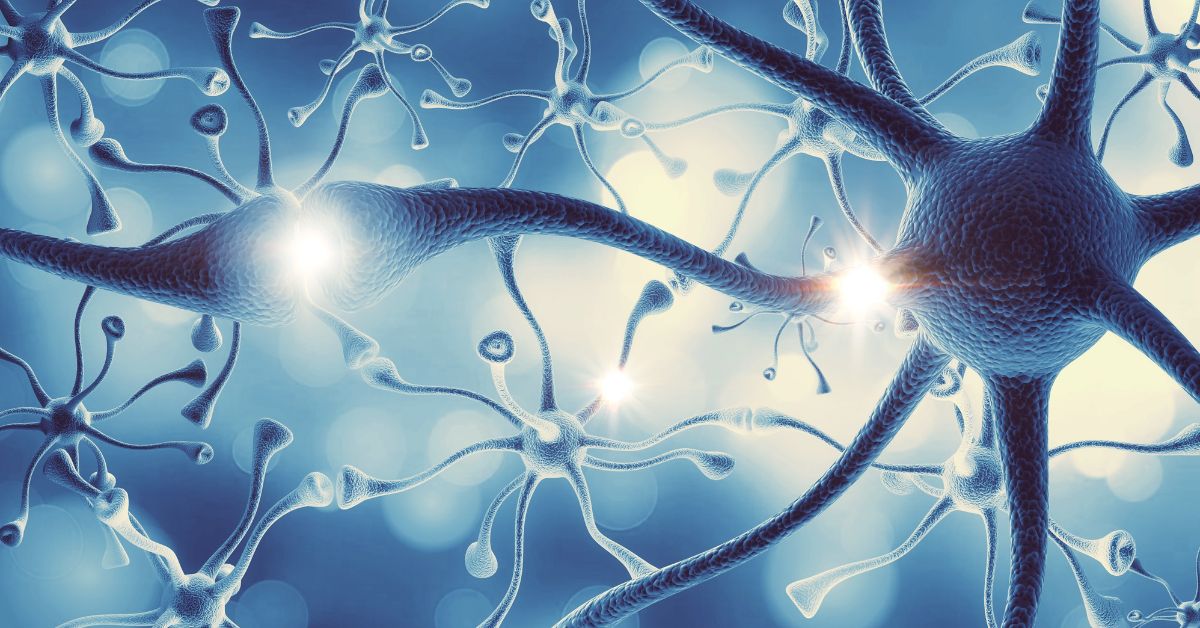Have you ever known someone who struggled with cocaine abuse?
It can be a difficult and painful experience for both the person struggling and their loved ones. As someone who has worked in the addiction recovery field for decades, I understand the complexities of it and the importance of support during the recovery process.
In this article, I will share some insights into understanding cocaine addiction, the role of support during recovery, and ways we can assist someone coming off of this addiction.
Understanding Cocaine Addiction

Cocaine is a highly addictive drug that affects the central nervous system. It is a stimulant that produces feelings of pleasure, energy, and alertness. These feelings are caused by an increase in dopamine levels in the brain, which is a neurotransmitter associated with pleasure and reward. However, the effects are short-lived, and the brain quickly adapts to the drug, leading to a cycle of drug abuse.
Cocaine addiction can have serious consequences on a person’s mental and behavioral health. It can lead to heart disease, stroke, and respiratory failure. It can also cause anxiety, depression, and psychosis.
Those struggling with it may experience financial difficulties, legal problems, and strained relationships with loved ones. It is important to understand that addiction is a disease, and those struggling with it need support and understanding to overcome it.
FREE: Get the 3 pieces of advice that helped me understand this disease of addiction
Importance of Support During Recovery

Recovery from addiction is not easy, but it is possible. It requires a comprehensive approach that includes medical treatment, therapy, and support from loved ones. The recovery process can be long and challenging, and those struggling with addiction need a strong support system to help them through it.
Support during recovery can take many forms. It can be as simple as being there to listen, offering encouragement, and providing a safe and stable environment. It can also mean helping with practical needs like transportation to appointments or assisting with finances. Support can come from family, friends, support groups, or qualified healthcare providers.
Role in Helping Someone Addicted to Cocaine

If you know someone who is struggling with cocaine addiction, there are several things you can do to help them or get help. Here are some tips:
Educate Yourself
It is important to educate yourself about addiction, cocaine withdrawal symptoms, and recovery. This will help you understand what your loved one is going through and how best to support them. You can do this by reading articles, attending support group meetings, or talking to addiction professionals.
Communicate with Empathy
Communicating with empathy means being present, listening actively, and avoiding judgment. It means acknowledging your loved one’s struggles and offering support and understanding. It is important to let them know that you believe in them and that you are there to support them through the recovery process.
Encourage Professional Help
Personal and professional help is vital for those struggling with cocaine cravings. Encourage them to seek medical treatment, therapy, or support group meetings. Offer to help them find resources or accompany them to appointments.
Create a Safe Environment
Create a safe and stable environment for the people around you who are cocaine users. This means avoiding triggers like drugs or alcohol, providing a safe place to live, and avoiding situations that may be stressful or overwhelming.
UPDATED: Discover the 3 life-changing things about addiction I wish I knew years ago
Take Care of Yourself
Taking care of yourself is just as important as taking care of those you care about. It is important to set boundaries, practice self-care, and seek support for yourself. This will help you maintain your own emotional and mental well-being and better support them.
Recognize the Signs and Symptoms

It can be difficult to recognize the signs and symptoms of cocaine addiction, but it’s important to educate yourself so you can help them get the support they need.
Physical Symptoms: When Addiction Takes a Toll on the Body
Addiction can take a significant toll on the body, and physical symptoms of cocaine often manifest as a result. Here are some of the most common physical symptoms to look out for:
- Increased heart rate and blood pressure: When someone is under the influence of drugs or alcohol, their heart rate and blood pressure can increase, which can lead to a host of health problems.
- Dilated pupils: Pupils that are larger than usual can be a sign of drug use like cocaine, causing the pupils to dilate.
- Loss of appetite: Many drugs can suppress the appetite, leading to weight loss and malnutrition.
- Insomnia: Sleep disturbances are common among individuals struggling with addiction, as drugs and alcohol addiction can disrupt the normal sleep cycle.
- Runny nose or frequent sniffing: This can be a sign of cocaine or other stimulant use. Snorting cocaine irritates the lining of the nasal passages and can eat away the interior cartilage that separates the nostrils.
- Track marks (if injecting): Injecting drugs can leave marks on the skin, including scabs, bruises, and scars.
Behavioral Symptoms: How Addiction Affects Behavior
Addiction doesn’t just affect the body; it can also have a significant impact on behavior. Here are some of the most common behavioral symptoms to be aware of:
- Increased energy and talkativeness: Some drugs can cause individuals to become hyperactive and talkative.
- Extreme mood swings: Mood swings are common among individuals struggling with addiction, as drugs and alcohol can disrupt the brain’s normal chemistry.
- Social isolation: Individuals struggling with addiction may withdraw from social activities or relationships, preferring to spend time alone or with others who use drugs.
- Financial problems: Addiction can be expensive, and individuals may struggle to pay for drugs or alcohol, leading to financial problems.
- Legal issues: Some drugs are illegal, and individuals may face legal consequences as a result of drug use.
GET: The 3 things that actually "allowed" me to help my son (and regain control again)
Outpatient treatment options like cognitive behavioral therapy have been shown to be very helpful in the recovery process by providing patients with the tools they need to adapt to wellness.
Educate Yourself about Cocaine Addiction

If you know someone who is a cocaine addict, it’s required to educate yourself about the nature of addiction, the short-term and long-term effects, physical and psychological dependence, cravings and withdrawal symptoms, and possible complications.
Short-term and long-term effects of cocaine use
Cocaine use can cause a range of short-term and long-term effects, including:
- Short-term effects: euphoria, increased energy, restlessness, feeling irritable, anxiety, paranoia, dilated pupils, increased heart rate, blood pressure, and body temperature.
- Long-term effects: addiction, tolerance, diminished sense of smell, nosebleeds, difficulty swallowing, hoarseness, chronic cough, respiratory problems, heart disease, stroke, seizures, gastrointestinal problems, sexual dysfunction, and mental health disorders.
Physical and psychological dependence
Cocaine use can lead to both physical and psychological dependence.
- Physical dependence occurs when the body adapts to the drug’s presence and requires increasing amounts to achieve the desired effect.
- Psychological dependence occurs when users feel like they need cocaine to cope with stress, anxiety, or other negative emotions.
Withdrawal symptoms
Withdrawal from cocaine can cause a range of symptoms, including:
- Physical symptoms: fatigue, increased appetite, insomnia or hypersomnia, muscle pain, tremors, chills, and sweating.
- Psychological symptoms: depression, anxiety, irritability, agitation, and intense cravings.
Withdrawal symptoms can be intense and last for several weeks, making it challenging for users to quit without professional help.
Possible complications
Cocaine use can lead to several complications, including:
- Overdose: Cocaine overdose can cause seizures, heart attack, stroke, respiratory failure, and death.
- Infectious diseases: Sharing needles or other drug-related equipment can increase the risk of contracting HIV, hepatitis C, and other infectious diseases.
- Legal problems: It can also lead to legal problems, including arrest, fines, and imprisonment.
Approach the Person with Care and Empathy

You want to express your concern and offer support, but you also don’t want to come across as judgmental or confrontational.
FREE: Get the 3 pieces of advice that helped me understand this disease of addiction
Choose the Right Time and Place
When you’re approaching a loved one about their addiction, it’s necessary to choose the right time and place.
Avoid confrontations, as this can make the person feel defensive and less likely to listen to what you have to say. Instead, find a quiet and private setting where you can talk without distractions.
It’s also important to be calm and non-judgmental when you approach the person. Remember to be patient and compassionate, and try to understand their perspective.
Express Concern and Offer Support
When you approach the person, it’s important to express your concern and offer support. Use “I” statements to express your feelings, such as “I’m worried about you” or “I care about you and want to help.” Be open and honest about your concerns, and listen to what the person has to say.
Offer emotional support, such as telling the person that you’re there for them and that you’ll support them in their journey to recovery. Let them know that you believe in them and that they’re not alone.
Encourage Addiction Treatment and Cocaine Detox

Finding the right treatment for someone struggling with addiction can be a daunting task. Here are a few insights into the different types of addiction treatment programs available and how you can find support for those you care about.
What Are the Different Types of Addiction Treatment Programs?
There are several different types of cocaine addiction treatment available, each with its own unique benefits. Here are a few of the most common options:
- Inpatient Rehabilitation: Rehab involves staying at a rehabilitation center for a period of time, typically ranging from a few weeks to several months. Inpatient programs provide a high level of structure and support, with patients receiving counseling, group therapy, and other forms of treatment in controlled environments, also known as rehab centers.
- Outpatient Treatment Programs: Outpatient programs offer a more flexible approach to addiction recovery, with patients attending counseling sessions and therapy sessions on an outpatient basis. This option is ideal for individuals who have work or school commitments they can’t take a break from.
- Therapy and Counseling: Individual and group therapy sessions can be an effective part of addiction treatment. These sessions can help patients address underlying issues that contribute to their addiction and develop healthy coping strategies.
- Support Groups: Support groups like Narcotics Anonymous can be a valuable resource for individuals in recovery. These groups provide a supportive community of people who understand the challenges of addiction and can offer encouragement and guidance.
How Can You Help Your Loved One Find Resources?
If you’re helping a friend or family member find treatment resources, here are a few steps you can take:
- Research Treatment Facilities: Take the time to research different treatment centers and programs to find one that fits their needs. Look for programs that offer evidence-based treatment, experienced staff, and a supportive environment.
- Contact Insurance Providers: Insurance providers often cover addiction treatment, but it’s important to verify coverage and understand any associated costs. Contact the insurance company to discuss coverage and any out-of-pocket expenses.
- Provide Assistance with Transportation and Scheduling: Addiction treatment can be time-consuming and require regular appointments. Offer assistance with transportation and scheduling to make the process easier for them.
Support During Cocaine Withdrawal Process and Recovery

UPDATED: Discover the 3 life-changing things about addiction I wish I knew years ago
Supporting someone through withdrawal and recovery can be a challenging and emotional experience, especially since withdrawal symptoms can last for months, but it is also a pivotal part of their journey toward sobriety.
Here are some practical tips on how you can best support the people you care about through this challenging time.
Be Prepared for Withdrawal Symptoms
Withdrawal symptoms can be intense and difficult to manage, but they are a natural part of the recovery process. Depending on the substance use disorder and the severity of the addiction, withdrawal symptoms can range from mild to severe.
As a supportive friend or family member, it’s important to educate yourself on specific withdrawal symptoms associated with abusing cocaine and to be prepared to offer comfort and support. This might involve helping them find a comfortable space to rest, offering soothing teas or other natural remedies, or simply being a comforting presence.
| Physical Symptoms | Psychological Symptoms |
|---|---|
| Fatigue | Anxiety and depression |
| Sleep disturbances | Intense cravings |
| Increased appetite |
Offer Practical Assistance
In addition to emotional support, practical assistance can also be incredibly helpful for someone going through withdrawal and recovery. Here are a few ways you can offer practical support:
- Encourage a healthy diet and exercise routine: Eating a healthy, balanced diet and staying active can help improve mood, reduce stress, and support overall physical and mental health. Encourage them to eat nutritious meals and engage in regular exercise, even if it’s just a short walk around the block.
- Help with household chores and responsibilities: During the early stages of recovery, they may not have the energy or motivation to keep up with household chores and responsibilities. Offering to help with tasks like cleaning, cooking, or grocery shopping can be a huge relief and help ensure a smooth recovery process.
- Provide a safe and drug-free environment: Creating a safe and supportive environment is vital for anyone going through recovery. This might involve removing any triggers or reminders of substance use from the home, encouraging positive habits and behaviors, and offering a sense of stability and security.
Maintain Ongoing Support and Encouragement

You want to help, but you may not know how to offer the right kind of support.
Here are some tips on how you can maintain ongoing support and encouragement for your loved one who is on the road to recovery.
Stay Involved in Their Recovery
One of the most important things you can do is to stay involved in the recovery process of those you care about.
- Attend therapy sessions or support group meetings with them.
- Celebrate their milestones and progress, no matter how small.
- Encourage the development of new hobbies and interests that align with their recovery goals.
It can be difficult to find the right balance when it comes to being involved in their recovery. You don’t want to be overbearing or intrusive, but you also don’t want to be too distant.
The key is to communicate openly and honestly with them and to ask how you can best support them.
Be Prepared for Possible Relapse
Relapse is a common part of the recovery process, and it’s important to be prepared for it. It doesn’t mean that they have failed; it’s more often a call that they need additional support and resources to get back on track.
In the chance of a relapse,
- Offer non-judgmental support and encouragement to seek help.
- Help them develop a plan for coping with triggers and high-risk situations.
- Encourage them to reach out to their support system, whether that’s a therapist, support group, or trusted friend or family member.
It’s important to approach relapse with compassion and understanding.
GET: The 3 things that actually "allowed" me to help my son (and regain control again)
Take Care of Yourself

It’s not uncommon to feel overwhelmed and helpless in the face of someone else’s substance abuse and cocaine habits. But it’s important to remember that you can’t pour from an empty cup. Taking care of yourself is fundamental if you want to be a supportive and effective ally for anyone’s recovery.
Below are a few tips on how to practice self-care, set boundaries, seek support for your own mental health, and understand the limits of your role in the person’s recovery. Let’s dive in.
Practice Self-Care and Set Boundaries
As a caregiver, it’s easy to get caught up in the needs of your loved one and forget about your own needs. But self-care is important for your mental, emotional, and physical well-being. Make time for activities that bring you joy and relaxation, whether it’s reading, exercising, or spending time with friends. Remember, you can’t help others if you’re burnt out.
It’s also important to set boundaries. This means being clear about what behaviors you will and won’t tolerate and sticking to those boundaries consistently. It’s okay to say no to requests that compromise your own well-being or values. Boundaries can be challenging, but they’re pivotal for maintaining healthy relationships.
Seek Support for Your Own Mental Health
Addiction can take a toll on the mental health of those who love someone with a substance abuse problem. It’s important to seek support for your own well-being. This can mean talking to a therapist, attending support groups for caregivers, or confiding in trusted friends or family members. Remember, there’s no shame in seeking help. It takes strength to ask for support when you need it.
Understand the Limits of Your Role in the Person’s Recovery
It’s important to understand that you can’t control another person’s behavior. You can offer support, encouragement, and resources, but ultimately, the person in recovery is responsible for their own choices.
It’s also important to recognize the limits of your role in the person’s recovery. You can’t force someone to get sober, and you can’t take responsibility for their relapses or setbacks. It’s important to focus on what you can control, such as taking care of yourself and setting healthy boundaries.
Empowering Recovery Together

Supporting someone to overcome cocaine addiction involves recognizing the signs, understanding the nature of addiction, and offering support throughout their recovery journey.
By educating ourselves about treatment options, providing emotional and practical assistance, and maintaining ongoing encouragement, we can be an important part of their support network.
Remember to take care of your own mental health and practice self-care to ensure a healthy, sustainable support system for the people you care for.
Ultimately, our empathy, understanding, and patience play a significant role in guiding someone to achieve long-term sobriety and build a new, fulfilling life free from addiction.
FREE: Get the 3 pieces of advice that helped me understand this disease of addiction
Frequently Asked Questions About How To Help Someone Coming Out Cocaine Addiction
How can I help someone stay motivated to quit cocaine, especially when the withdrawal symptoms can be so difficult to handle?
To improve the quality of life without cocaine, offer emotional support and remind them of the reasons they decided to quit in the first place. Celebrate their progress, and help them develop coping strategies to deal with withdrawal symptoms.
What should I do if the person I’m trying to help refuses to seek professional treatment for their cocaine addiction?
If the person refuses treatment, continue to express your concern and support. Be patient and encourage open communication so they feel comfortable discussing their addiction. Over time, they may become more willing to seek professional help.
How can I take care of myself while helping someone through cocaine withdrawal and avoid burning out or getting overwhelmed?
To avoid burnout, practice self-care and set boundaries. Seek support for your own mental health, and remember that it’s important to maintain your well-being while understanding the limits of your role in the person’s recovery.
